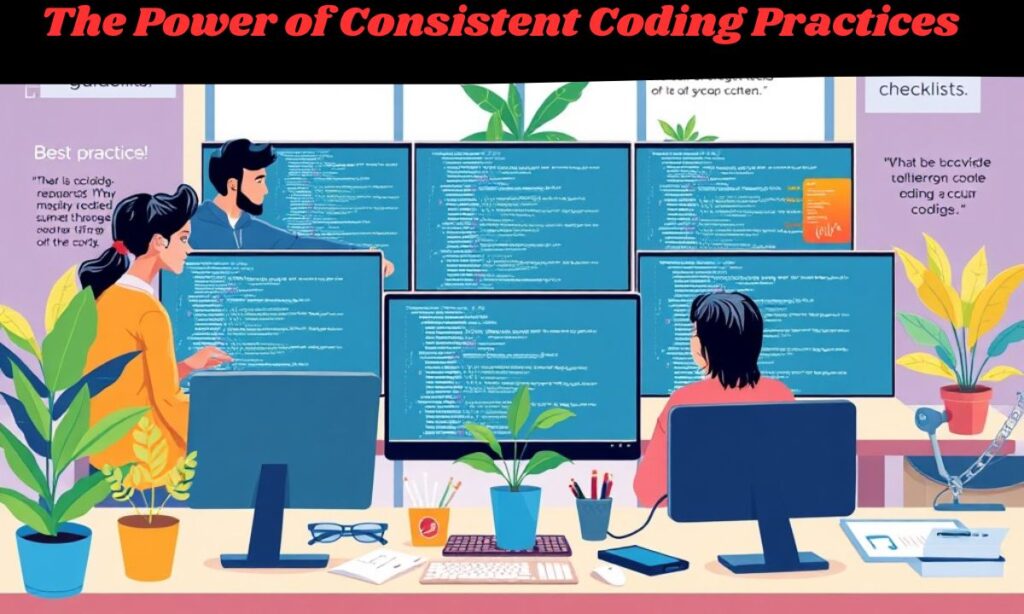Coding is more than writing lines of code; it’s about creating a sustainable, efficient, and collaborative process.
Whether you are a novice or an experienced developer, certain unspoken rules guide successful software development.
This guide explores these rules and provides actionable insights for developers at all levels.
The Importance of Clean, Readable Code
Clean, readable code ensures that your work can be easily understood and maintained by others. It simplifies troubleshooting and accelerates the development process for teams.
Well-structured code reduces errors and technical debt, saving time and resources. It sets a foundation for creating scalable and efficient software systems.
Why Code Readability Matters?
Readable code ensures that other developers can understand and maintain it efficiently. It reduces technical debt and enhances software maintainability, saving time and resources in the long run.
Tips for Writing Readable Code
- Use meaningful variable names.
- Stick to a consistent coding style.
- Avoid overly complex logic.
- Break your code into smaller, reusable functions.
Understanding the Importance of Comments
Comments help explain the purpose and logic of your code, especially in complex sections. They make your code more accessible to collaborators and your future self.
Effective comments provide clarity without overwhelming the code. They focus on explaining the “why” behind decisions rather than reiterating the “what.”
When and Why to Use Comments?
Code comments clarify the purpose of your code, especially in complex logic areas. They are vital for collaborative coding, helping others understand your thought process.
Balancing Code and Comments
Over-commenting can clutter your code. Focus on explaining the why, not the what, unless necessary. Let the code speak for itself wherever possible.
The Power of Consistent Coding Practices

Consistent coding practices improve readability and reduce confusion within a team. They ensure everyone follows the same style, promoting seamless collaboration.
Adhering to a unified standard minimizes errors and streamlines debugging. It also fosters a professional, maintainable codebase for future growth.
Establishing a Coding Style
A consistent coding style improves code readability and minimizes confusion. Adhering to team-wide coding standards ensures seamless collaboration.
Adhering to Best Practices
- Follow programming best practices.
- Regularly review and refactor code.
- Use version control tools like Git to track changes.
Embracing the Concept of DRY (Don’t Repeat Yourself)
The DRY principle focuses on reducing redundancy in code to enhance efficiency. Avoiding repetition minimizes errors and makes maintenance simpler.
By reusing modular components, you can save time and ensure consistency. This approach leads to cleaner, more adaptable, and scalable software solutions.
What is DRY and Why is it Important?
The DRY principle encourages developers to reduce redundancy. Repeated code increases errors and complicates maintenance.
How to Apply DRY in Your Code
- Create modular functions.
- Use inheritance and interfaces in object-oriented programming.
- Leverage libraries and frameworks for common tasks.
Also Read This: Unfgaming.net: A Beginner’s Guide to the Ultimate Gaming Experience
Debugging: A Skill Every Developer Must Master
Debugging is essential for identifying and fixing errors that impact software functionality. It ensures your code runs smoothly and meets project requirements.
Mastering debugging tools and techniques helps save time and improve efficiency. It also enhances your problem-solving skills, making you a stronger developer.
The Art of Debugging
Debugging is an essential skill that involves identifying and resolving issues in your code. It improves software optimization and ensures functionality.
Debugging Tips for New Developers
- Use debugging tools like breakpoints.
- Simplify the problem by testing small code sections.
- Rely on error logs for insights.
Learning to Collaborate with Others
Effective collaboration boosts code quality and encourages idea-sharing. It helps developers learn from one another and grow professionally.
Strong teamwork improves project outcomes and fosters a positive work environment. Constructive feedback and communication are key to successful collaboration.
The Importance of Code Reviews
Code reviews improve code quality and foster professional growth. They also help developers learn from each other.
How to Handle Feedback?
- Accept constructive criticism graciously.
- Use feedback as a learning opportunity.
- Collaborate on improving the code.
Staying Up-to-Date with New Technologies

The tech world evolves quickly, and staying updated ensures your skills remain relevant. Embracing new tools and techniques can improve your efficiency and innovation.
Regularly learning about emerging technologies keeps you competitive in the field. It also opens doors to better career opportunities and creative solutions.
The Ever-Evolving World of Coding
Technology evolves rapidly. Staying updated with the latest software development principles and tools is crucial for relevance.
Finding the Right Resources
- Follow online courses.
- Read blogs and technical papers.
- Join developer communities.
Professional Growth Strategies
- Build a strong portfolio.
- Contribute to open-source projects.
- Attend coding bootcamps and conferences.
Soft Skills: The Underrated Technical Asset

Soft skills, like communication and teamwork, are essential for success in tech. They help developers work efficiently with others and navigate complex project dynamics.
Strong interpersonal skills improve problem-solving and decision-making. They are just as important as technical expertise for career growth and project success.
Frequently Asked Questions
What are the unspoken rules of coding?
The rules include writing clean code, adhering to consistent practices, and collaborating effectively.
Why is code readability important?
Readable code is easier to maintain, reducing technical debt and enhancing team collaboration.
How can I improve my debugging skills?
Practice using debugging tools, analyzing error logs, and simplifying complex problems.
What is the DRY principle in coding?
The DRY principle stands for “Don’t Repeat Yourself,” encouraging developers to reduce redundancy for better maintainability.
How can I stay updated with new technologies?
Follow developer blogs, take online courses, and engage with coding communities.
Conclusion
Mastering the unspoken rules of coding is essential for both novice and experienced developers. From writing clean, readable code to mastering debugging skills and staying updated with the latest trends, these principles shape a developer’s success.
By focusing on collaboration, adhering to the DRY principle, and maintaining consistency, you can enhance your coding journey and contribute to sustainable, high-quality software development.

Hassan is a talented content writer and digital marketer with expertise in SEO, social media management, and online marketing.





